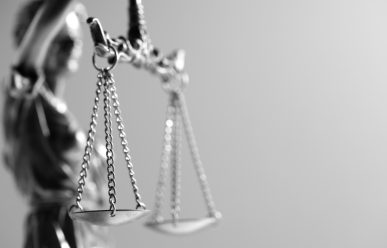On March 5, 2014, the Maryland Senate passed SB212 (2014), historic legislation providing the protections of Maryland’s employment, public accommodations, and housing anti-discrimination laws to transgender persons. Passing by a vote of 32-15 in the Senate, the bill reportedly passed with the largest margin ever for an LGBT-rights bill in Maryland.
[i]The bill, introduced as The Fairness for All Marylanders Act of 2014, faced what many considered to be its greatest challenge in the Senate Judicial Proceeding’s committee, where it ultimately passed by a vote of 8-3 on February 20, 2014.[ii] On the heels of the Maryland Senate’s vote in favor of protecting transgender individuals from employment discrimination, the absence of such a provision in the Prince George’s County Code highlights an increasingly glaring omission for the County’s employees and residents.
What does the bill do?
SB 212 (2014) proposes to amend current prohibitions on discrimination in employment, housing, and public accommodations on the basis of race, color, religion, sex, disability, marital status, and sexual orientation under State law by including gender identity, and therefore transgender individuals, as a protected status.
The first reading of SB 212 (2014) defined “gender identity” as a “gender related identity, appearance, expression, or behavior of an individual regardless of the individual’s assigned sex at birth.” Opponents raised objections to the bill based on proposed hypotheticals suggesting that transgender people would be able to use restrooms consistent with their gender identities, as opposed to their assigned sexes at birth, creating uncomfortable and potentially unsafe environments.[iii]
Advocates have argued that to the contrary, transgender people are in fact in greater need of anti- harassment and anti- discrimination laws. The National Center for Transgender Equality and the National Gay and Lesbian Task Force found that transgender and gender non-conforming people suffer greater rates of unemployment, homelessness, and harassment than found in the general population.[iv]
Senator Getty’s amendment addressing these concerns is credited for the Act’s passing. The amendment narrows the definition of “gender identity.” It, too, was adopted by the Senate. In addition to the proposed definition for “gender identity” stated in the first reading of the bill, as adopted with amendments, SB 212(2014) provides that a person’s gender identity:
may be demonstrated by either consistent and uniform assertion of the person’s gender identity or any other evidence that the gender identity is sincerely held as part of theperson’s core identity.
If the Fairness for All Marylanders Act of 2014 passes the House and is signed into law by Governor O’Malley, Maryland will become the 18th state in addition to Washington, DC that extends its anti-discrimination statutes to transgender persons.
How would SB212(2014) affect employees in Prince George’s County?
Significantly, Md. Code State Gov’t §20-1202 provides an independent civil cause of action for discrimination under the Howard County, Montgomery County, or Prince George’s County codes in addition to the civil cause of action provided for violations of the State’s anti-discrimination statutes.[v] Likewise, Md. Code State Gov’t §20-1203 authorizes a civil action for violations of Baltimore County’s anti-discrimination laws arising under the Baltimore County code. Distinct from the civil cause of action a complainant can raise under State Gov’t § 12-1013 for violations of the state’s anti-discrimination laws, §20-1202 and §20-1203 provide for the award of attorney’s fees and are not limited by any caps on damages.
Yet, as the General Assembly takes one step toward equal protection of civil rights for all Marylanders, examination of each of the county codes that serve as the basis of legislatively authorized civil claims reveals that the protections sought by SB 212(2014)’s advocates are absent from Prince George’s County anti-discrimination ordinances. The Montgomery County Council modified its county code to include anti-discrimination protections for transgender people in 2007;[vi] Howard County followed in 2011;[vii] and Baltimore County amended its Code to include gender identity as a protected status in 2012.[viii] Each of the counties whose codes prohibit discrimination on the basis of gender identity therefore entitle a complainant to file a civil claim on that basis under the county code under the authority of State Gov’t §20-1202 or 1203. If SB 212 (2014) is signed into law, transgender individuals in Montgomery, Howard, and Baltimore Counties would also be able to file an additional civil claim for employment discrimination on the basis of gender identity under the State’s proposed anti-discrimination law, as well.
However, at present, there are no protections for gender-identity or expression or for transgender persons under the existing Prince George’s County ordinances prohibiting discrimination in employment , housing, residential real estate, law enforcement, education, financial lending, and public accommodations.[ix] Section 2-186 of the Prince George’s County Code defines discrimination as an act or failure to act or delay of any action regarding a person “because of race, religion, color, sex, national origin, age (except as required by State or federal law), occupation, familial status, marital status, political opinion, personal appearance, sexual orientation, or physical or mental handicap….” In so doing, Prince George’s County provides protections from discrimination in arguably the broadest scope, at least relative to its sister counties whose employees and residents are entitled to enforce anti-discrimination ordinances by filing civil claims in court.
If SB212(2014) is enacted into law, transgender employees in Prince George’s County would be entitled to file administrative charges of discrimination and lawsuits on the basis of their gender identities for a violation of the State law, but not for any violation of the Prince George’s County Code. As a result, transgender individuals filing claims of employment discrimination in Prince George’s County could be left with an incomplete remedy not equal to that otherwise enjoyed by successful complainants of employment discrimination under the county code on any other basis: without protection under the county code, transgender individuals in Prince George’s County would be deprived of the benefit of attorney’s fees and would further be subject to the limitations of the damages caps provided under State Gov’t §20-1009.
The actions of Howard, Montgomery, and Baltimore Counties appear to lay the foundation for a growing trend favoring equal protection of anti-discrimination laws for transgender employees. No matter the outcome of SB212 (2014) at the end of this legislative session, Prince George’s County should take note of this absence in its County Code. If The Fairness for All Marylanders Act of 2014 passes, the absence of gender identity as a protected status from the Prince George’s County Code creates a gap in the remedies potentially available to transgender individuals that is not apparent for any other employment discrimination complainants.
[i] Md. Code State Gov’t 20-101, et seq. currently prohibits discrimination in employment, public accommodations, and housing on the basis of race, color, religion, sex, disability, marital status, and sexual orientation. State employment discrimination laws further prohibit discrimination in employment on the basis of an individual’s genetic information. Md. Code State Gov’t §20-606.
[ii] Last year, The Fairness for All Marylanders Act of 2013, SB 449 (2013), failed to reach the Senate floor when the Committee voted 6-5 against the favorable passage of the bill with amendment. Similar bills have been introduced each year since 2007 and each time, failed to succeed in the Senate.
[iii] See, e.g., Sheila Kast, Restroom Use Debated in Gender Identity Bill, Feb. 26, 2014, available at http://wypr.org/post/restroom-use-debated-gender-identity-bill (last visited Mar. 7, 2014) (quoting one opponent, Anita Schatz, as saying “[t]his law will make it legal for anyone seeking to sexually assault another to invade what was once a safe environment for the most vulnerable, women and children. Not just bathrooms, I’m talking about showers, locker rooms, dorms…There are sexual predators who will use the vague description of gender identity and sexual orientation to gain access to safe areas according to their sexual mood at the time”) (second alteration in original).
[iv] Jaime M. Grant, Lisa A. Mottet, Justin Tanis, Injustice at Every Turn: A Report of the Nation Gender Discrimination Survey, National Gay and Lesbian Task Force (Feb. 3, 2011), available at http://www.thetaskforce.org/downloads/reports/reports/ntds_full.pdf
[v] See Md. Code State Gov’t §20-1013.
[vi] See Montgomery County Council Bill No. 23-07, Ch. 18, Laws of Mont. Co. 2007 (prohibiting discrimination effective Feb. 20, 2008 in not only employment, housing, and public accommodations, but in cable television and taxicab services, as well). See generally Montgomery County Code Chapter 27.
[vii] See Howard County Council Bill No. CB 54 (2011), codified as Howard County Code §12.200, et seq.
[viii] See Baltimore County Council Bill No. 3-12 (2012), codified as Baltimore County Code §29-2-101, et seq.
[ix] See Prince George’s County Code §2-186.
Photo credits: http://www.davidmixner.com/2012/10/new-marriage-equality-poll-on-maryland-ballot-measure.html and http://www.ohchr.org/EN/Issues/Discrimination/Pages/LGBT.aspx


